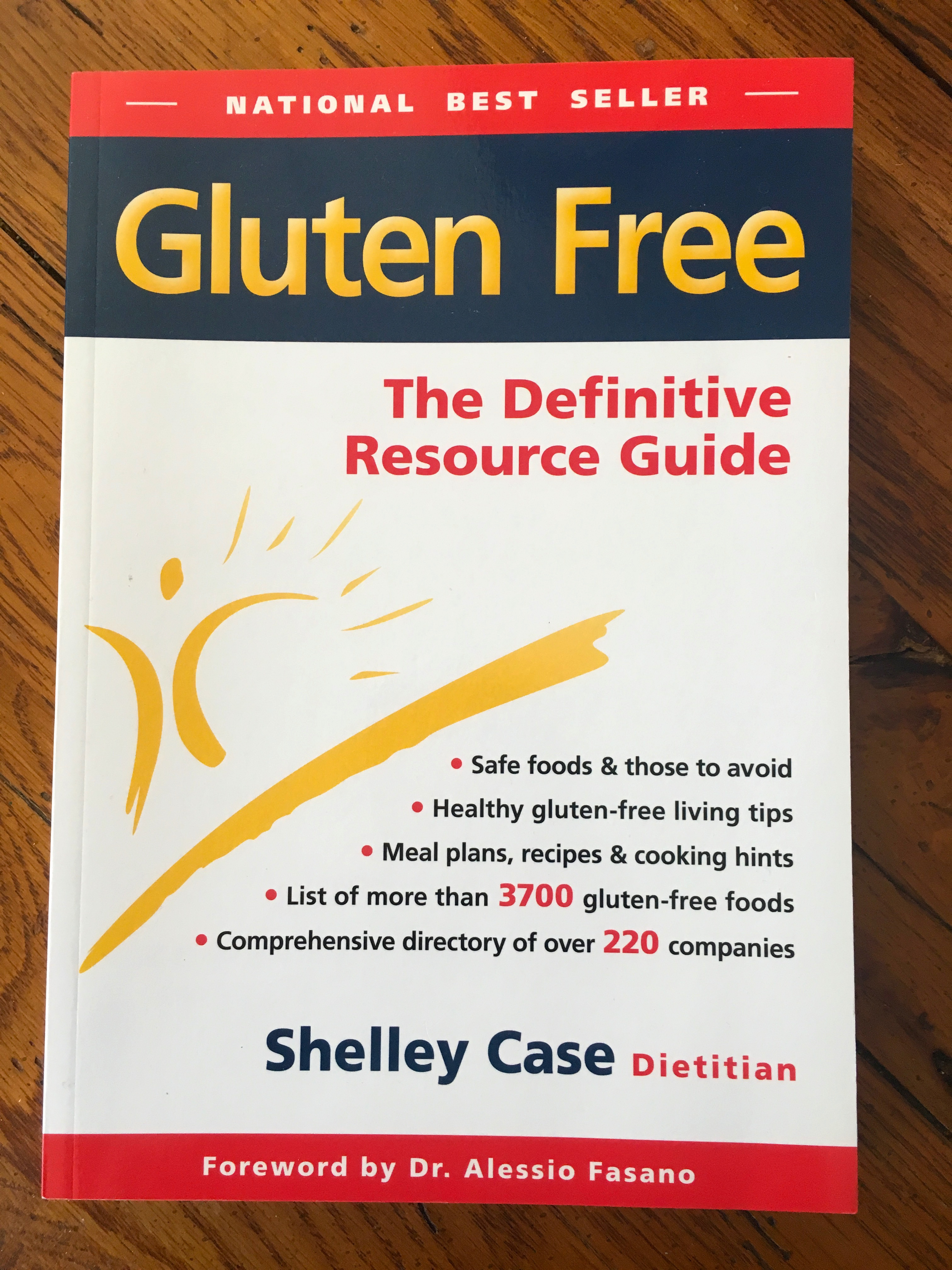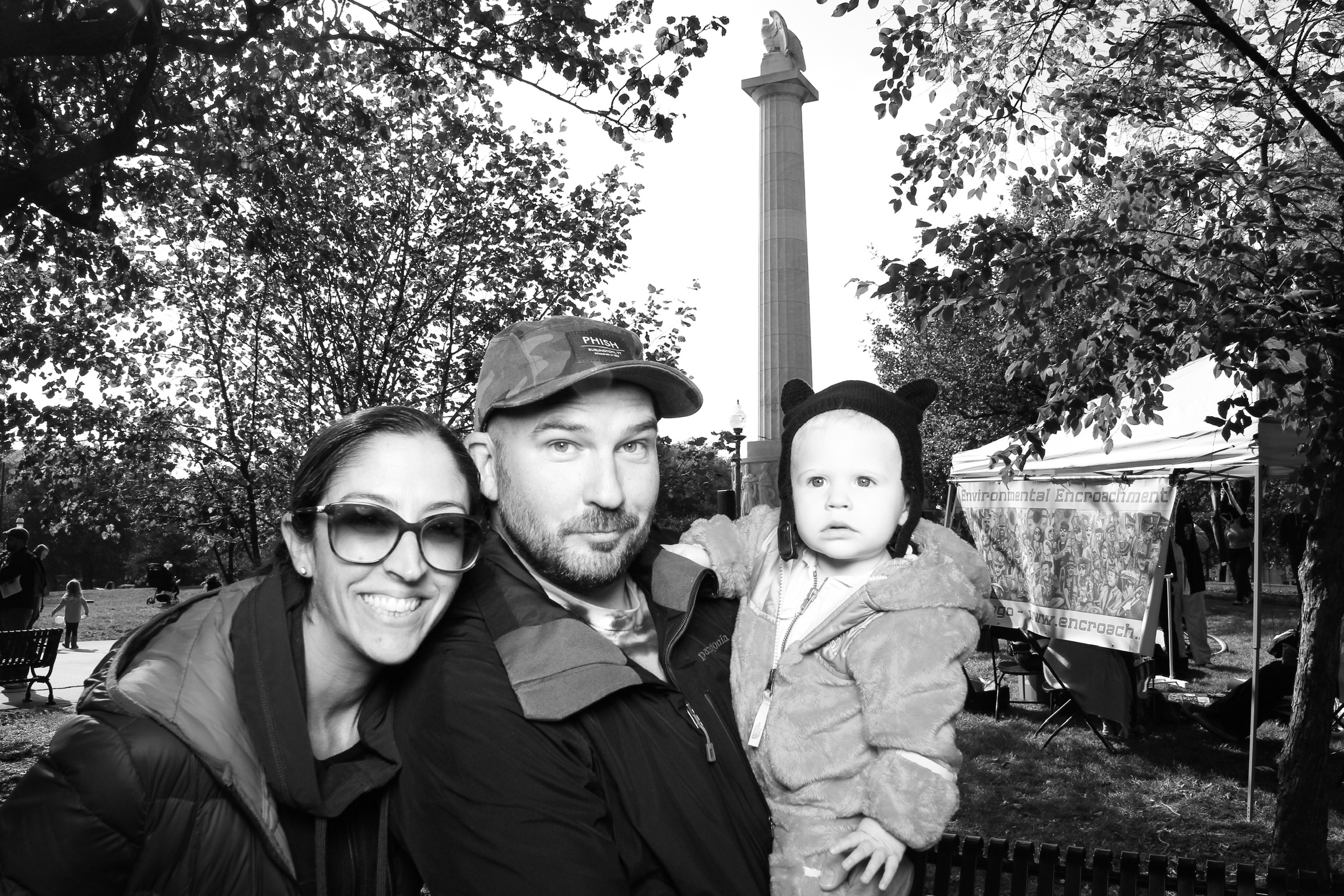May is Celiac Disease Awareness Month. To honor this important topic, I have partnered with Shelley Case, RD to give away a copy of her book, Gluten Free: The Definitive Resource Guide to one lucky winner. 
In addition, I share the story of one of my favorite GI dietitians, Lori Welstead… her road to a celiac diagnosis.
When you suffer with digestive distress with little improvement year after year, does it make sense to re-visit the possible diagnosis of celiac disease?
I asked one of my kind and smart dietitian colleague to share her celiac diagnosis journey. You may be surprised to learn that diagnosing celiac may not always be so clear cut.
Lori Welstead, MS, RD, LDN, is a celiac disease expert dietitian that works at University of Chicago’s renown Celiac Disease Center. She has been a GI dietitian since 2004. She was diagnosed with IBS just prior to taking on her role at U. of Chicago. Her IBS symptoms settled down between 2006-2014, but in 2015, she noted a resurgence of GI symptoms and other symptoms. During a University of Chicago Celiac Education Day event in 2015, which offered celiac blood screening tests, Lori took decided to undertake the celiac screening blood test again.
Here is Lori and her beautiful family! 
Lori shares her story, “Just 18 months prior to the celiac education event, I tested negative when my celiac antibodies were drawn. But since that time, I had not been feeling well. During that period, I had been on three international trips (two to Italy in which I was quite sick), and had two devastating miscarriages plus a hernia surgery. It had been a whirlwind. My symptoms included: fatigue, borderline anemia, miscarriages, eczema and anxiety. On November 9th, 2015, I received a life-changing call from Dr. Guandalini, one of University of Chicago’s Gastroenterologists. He told me my celiac serologies from our screening came back positive. I quickly scheduled an endoscopy and just two weeks later got the definitive diagnosis of celiac disease. As you may imagine, the ten days between the bloodwork and the endoscopy included many questionable ‘last meals’ and I got in my favorite foods before confirming I had celiac disease and would now be gluten-free for life. After so many years of advising patients about the gluten-free diet and researching and writing about it, I would now be experiencing it and living with it, just as they do every day.”
Lori underwent an endoscopy to confirm the celiac diagnosis (the celiac antibody blood test alone is not enough evidence), a week before Thanksgiving. “The idea of having celiac disease brought up emotions surrounding food and family. Despite my expertise in educating and counseling patients and professionals on the gluten-free diet, it was still a challenge to find a balance and minimize anxiety in social situations.”
Patients often undergo a bit of a grieving process when diagnosed with celiac. Grieving the loss of enjoying a crusty baguette, a favorite pizza, or the simple ease of dining out. Lori continues, “There were times I would cry just thinking about eating out or eating at a family member’s house when I was initially diagnosed. Typically, it can take months to a year to fully adapt to the gluten-free diet. There are social, emotional and physical changes that affect the choices of someone with celiac disease. Being mindful, practicing patience, kindness and understanding with oneself during rough times can help one adapt to the emotional rollercoaster and lead a happier life.”
One of Lori’s key messages for healing herself and others, “Give yourself some self-compassion. Giving yourself the same loving kindness and care we would give a friend or family member when they struggle, fail or make mistakes.”
Lori’s wise words, “Trust your intuition and if you are experiencing symptoms, get tested for celiac disease.”
The symptoms of celiac disease truly run the gamut–from having zero symptoms to fatigue, osteoporosis, depression, GI distress, GERD, weight gain or loss, anemia, brain fog, small intestinal bacterial overgrowth, infertility or miscarriages, to name a few. If you have a biological family member with celiac disease, this ups your risk.
It is possible to have a negative celiac serology test one year and a positive one the next. Discuss if re-screening for celiac disease makes sense for you with your gastroenterologist or primary care doctor.
To learn more about how to properly test for celiac disease, check out my post here.
Big thanks to Lori Welstead for sharing her story! xx
And If you are interested in a chance to win, Shelley Case’s book, simply leave a comment sharing your favorite gluten free product! One randomly selected winner will be chosen May 30, 2019.

Brad Ermeling
Annie Chun’s brown rice noodles
Rhiannon Rune
Favorite gluten free product is Classic Sea Salt Twists from Quinn— https://www.quinnsnacks.com/snacks/pretzels/classic-sea-salt-twists/
….with the secret ingredients being Whole Grain Sorghum Flour and Long Grain Brown Rice Flour…YUM!
michele
Canyon Bakehouse gluten free breads.
Elizabeth
Anything from Squirrel and the Bee bakery in NJ 🙂
Bridget
King Arthur Gluten Free All purpose Flour!
Beth Rosen, MS, RD, CDN
By The Way Bakery brownies in NYC and CT. They are dairy-free too (and low-FODMAP!)
Amanda
Great post! Enjoy life Cocoa Loco bars
Lisa Simpson
I have an awesome gluten free recipe for a no crust broccoli quiche that I would love to share. I make it often because it’s also low carb and yummy!
Margaret B. Peel
Glutino English Muffins
Kim
Nature’s Path Gluten Free Buckwheat Wildberry Frozen Waffles
Bonnie Arseneault
Aurora Gluten Free Bread Crumbs
Shannon
Udi’s Snickerdoodle Cookie
Laura
Duncan Hines Gluten Free Cake mixes are delicious.
Teri Schlesinger
Anything from Mariposa Bakery in Oakland California
Colleen
Trader Joe’s Gluten Free White Sandwich Bread. It is lower in calories and fat than other gluten free breads and tasty too!
Nan
Dark Chocolate, Nuts and Sea Salt Snack bars, lactose and gluten free from Fody Foods
Rhiannon Rune
Quinn Classic Sea Salt pretzels, GF, DF, egg free, etc….YUM!
https://www.quinnsnacks.com/snacks/pretzels/classic-sea-salt-twists/
Mary Barker
Nabisco Good Thins Simply Salt rice crackers are crunchy, gluten free, and low-FODMAP!
Allison
I second anything from The Squirrel and the Bee in NJ. I also have a soft spot for Coconut Aminos
Julia Powers
Against the Grain pizza crust
Amy
Bobs Cup for Cup GF flour
Wendy
Trader Joe’s coconut aminos
Annie
The GFB (Gluten Free Bites) dark chocolate coconut!
Vivian Lewis
Tinkyada Brown Rice Spaghetti
Sandie Saporito
Kate, you introduced me to the Al Fresco chicken bacon, OMyGoodness its yummy!! Now l make sure it’s always in my house! Thanks for all you do! My life is exponentially better because of your Blog.
Christy
I love Enjoy Life Foods dark chocolate chips!! Thanks for ALL you do, Kate!
Marichell
I found the yummiest Gluten Free cakes (only flavor so far is Chocolate chip cookie dough) @ Nothing Bundt Cakes
Stefanie
Jovial Egg Taglietelle!
Rhiannon Rune
Quinn brand Classic Sea Salt pretzels– GF and yum!
Beth Klos
Trader Joe’s brown rice spaghetti. (Love the
Tinkyada ones already posted, too!)
Bonnie
Kate Scarlata’s blueberry muffin recipe! They are jam packed with blueberries.
I just enjoyed one with a hot cup of tea.
katescarlata
Awww thanks Bonnie!
Roberta Stewart
Ugly’s Gluten Free Pizza Crust!!
Jeri T
Thank you for your Blog! LOVE Canyon Bakehouse Heritage bread!
Dee
I have many favorites but a new one has been Organic Gluten-Free Bionaturae Pasta. Their noodles have the best texture and remind me most of authentic Italian pastas!
Chris
I will not give you a name of a product but a name of an excellent cafe/bakery and restaurant in NYC (West Village) that is GF, Senza. The baker is celiac certified and the food is amazing. I had a panini and almost cried. The eclairs and creme puffs as unbelievable. If NYC run there!!!
Andrea
Trader Joe’s brown rice quinoa spaghetti (and fusilli) pasta. There’s nothing like rediscovering the joy of twirling spaghetti noodles.
Cindi
Julian Bakery – ProGranola, Vanilla Cinnamon Cluster!
Kristin Vance
Outrageous Breads. Local to Boulder, Colorado.
Sarah
TJ GF rolled oats
Angie
Boil In A Bag Brown Rice or Boil In A Bag Quinoa as I use them all the time.
Mary Heafy
three bakers ancient grain bread — especially yummy toasted!
Antonella Dewell
Schar Gluten-Free (and Low FODMAP) bread, especially the “ciabatta” – tastes almost like the real thing!
Wendy Hosmer
Sweet Loren’s Place & Bake Gluten Free Cookies. Especially the Oatmeal Cranberry ones! https://sweetlorens.com/place-bake-gluten-free-oatmeal-cranberry
Linda S.
Trader Joe’s brown rice gluten free bread.
Jahan Becham
I love Banza pasta made with chickpea flower. It’s low carb and gf but most important it taste delicious!